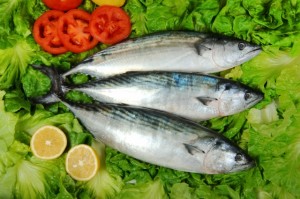Supermarket chain gets smarter about sustainable seafood

Some of the more progressive supermarket and grocery food chains have started becoming more aggressive about the sorts of seafood that they source.

In mid-July, Delhaize America, which owns the Hannaford, Sweetbay, Food Lion and Bottom Dollar Food supermarkets, said it will require its seafood suppliers to verify that they source products locally from sources that use sustainable fishing practices. The thing that I find particularly interesting is that this policy applies not just to fresh fish, it also covers anything that is frozen. Here's what one of the company's corporate responsibility managers, George Parmenter, said in the press release:
"We want our shoppers to have confidence that seafood they buy from us is from fisheries that are viable and maintained for the future. The health of fisheries is important to us as a retailer, both fro the long-term product supply and for reducing the environmental impacts of products we sell."
This particular topic is near and dear to my heart for three reasons:
- Given my druthers, I could eat fish or seafood pretty much every day, except for the sort to which I am highly allergic (sadly, that is salmon and trout).
- I used to be a member of the Monterey Bay Aquarium, which has been distributing the Seafood Watch list for as long as I can personally remember (easily 10 years, and I think more).
- I think I am not alone in saying that most Americans are really clued into seafood sourcing issues in the wake of the BP oil spill in the Gulf.
Delhaize is working with the Gulf of Maine Research Institute to develop its policy. The specifics of the policy include these principles, which apply to anything that is harvested from the wild.
- Keeping detailed harvest data, so that the company can ensure sourcing levels are within certain limits
- Coming up with restocking plans
- Maintaining active enforcement policies
When it comes to farm-raised fish and seafood, Delhaize will source products certified under the Best Aquaculture Practices program.
The policy is supposed to go into effect by March 31, 2011.
How do the major supermarket chains fare on the sustainable seafood issue? Of course, Greenpeace has a list of who is naughty and nice, in its estimation. The latest update, published at the end of April, shows Target at the top of the heap, followed by Wegmans and Whole Foods. Delhaize is one of the companies that gets a passing grade, although none of the organization gets what Greenpeace designates as a "good" score. The organization details the rationale for sustainable seafood policy in its ongoing Carting Away the Oceans report.
This post was originally published on Smartplanet.com